Science Actually is a podcast run by both staff and students at Imperial College London. Each episode features interviews with Imperial's experts to uncover answers to common questions across the most intriguing and cutting-edge topics in science.
Whether you're a student at Imperial College London or simply a science enthusiast, 'Science Actually' is your go-to podcast for expanding your understanding of the world around you. Prepare to be inspired, enlightened, and entertained as we unlock the secrets of science together.
Proudly supported by the Data Science Institute at Imperial.
Click and play
Current Science Actually Team - 2023/24
-
Gemma Ralton
/prod01/channel_3/media/imperial-college/data-science-institute/pwp-picture-3000X2000-(1).jpg)
Personal details
Gemma Ralton Podcast Manager, Communications Officer DSIAffiliations
Gemma is the Communications Officer for the Data Science Institute and the Podcast Manager for Science Actually. She joined Imperial in 2020 to complete a Masters in Science Communication and worked at the Department of Chemical Engineering in the Communications team before moving to the DSI.
-
Jack Cooper
/prod01/channel_3/media/imperial-college/data-science-institute/Olivia-Da-Costa-1-(1)-(1).jpg)
Personal details
Jack Cooper Podcast Writer & Editor, Communications and Policy Outreach Officer ISSTAffiliations
As part of his Imperial role, Jack leads on the Zero Pressure podcast with Dr Helen Sharman, produces events targeted towards the public and other stakeholders, and initiated the Stemettes 10 th Anniversary Festival with the Global Challenge Institutes. In his personal life, Jack is an award-winning poet ( www.jackcooperpoet.com ).
-
Eloise Pearce
/prod01/channel_3/media/imperial-college/data-science-institute/blank-profile-picture-973460_960_720.jpg)
Personal details
Eloise Pearce Podcast Sub Editor, Undergraduate Student, Department of Life Sciences -
Alec Boyd
/prod01/channel_3/media/imperial-college/data-science-institute/Headshot--A.-Boyd.jpg)
Personal details
Alec Boyd Podcast Writer & Editor MSc Economics and Strategy for Business Student, Business SchoolAffiliations
A business student on a science podcast? Your eyes do not deceive. I'm interested in exploring the intersection of quantitative and qualitative methodologies; particularly, how they can be used together to implement practicable solutions to problems. Yes, data and quantitative methodologies are important; however, we oft forget the importance of the contextual (qualitative) environment that data must be presented in to be understood comprehensively.
-
Ovidiu Serban
/prod01/channel_3/media/imperial-college/data-science-institute/Ovidiu-Serban-300X400.jpg)
Personal details
Ovidiu Serban Podcast Writer & Editor, Research Fellow DSIAffiliations
Ovidiu is a Research Fellow at the Data Science Institute and team lead of the Data Observatory team. His current work includes real-time Natural Language Processing, Data Curation and Large-Scale Visualisation Systems. Ovidiu loves talking about AI, computers and their impact on medicine and society in general. For the podcast he worked on the future of AI ethics, explainability and economic impact in Season 2.
-
Ella Orme
/prod01/channel_3/media/imperial-college/data-science-institute/Ella_picture.jpg)
Personal details
Ella Orme Podcast Writer & Editor, 2nd year Mathematics PhD Student, Department of MathematicsAffiliations
I’m interested in the use of statistics in everyday life: in particular, how misconceptions are used and abused in the media. With this podcast I’ll try to address the questions: what can we do as academics to prevent these misconceptions? And how, as citizens, can we avoid them?
-
Gavin Reed
/prod01/channel_3/media/imperial-college/data-science-institute/blank-profile-picture-973460_960_720.jpg)
Personal details
Gavin Reed Podcast Writer & Editor, Enterprise Marketing & Communications Manager -
Tina Schmehel
/prod01/channel_3/media/imperial-college/data-science-institute/blank-profile-picture-973460_960_720.jpg)
Personal details
Tina Schmehel Podcast Writer & Editor, Alumni Communications and Digital Marketing Officer -
Molly Anne Brennand
/prod01/channel_3/media/imperial-college/data-science-institute/blank-profile-picture-973460_960_720.jpg)
Personal details
Molly Anne Brennand Social Media Editor, Taught Postgraduate, Centre for Environmental Policy -
Nadirah Hussain
/prod01/channel_3/media/imperial-college/data-science-institute/blank-profile-picture-973460_960_720.jpg)
Personal details
Nadirah Hussain Social Media Editor, Taught Postgraduate, Centre for Languages, Culture & Communication
 |
Educational Fellow |
I am an education fellow at the Faculty of Medicine. I love spreading my love for science and inspiring people with interesting scientific knowledge. For season one, I interviewed Simon Schultz for the episode on memory. For season two, I worked behind the scenes: brainstorming topics, episode development, training and support, and podcast communications. |
|---|---|---|
 |
3rd Year BSc Biochemistry Student |
I have an interest in science communications and joined the team because I believe that the podcast is able to effectively present novel scientific research while still being engaging & interesting. I interviewed Dr. Sarah Marzi exploring the future of age-related diseases and am involved in the marketing & media of the podcast. |
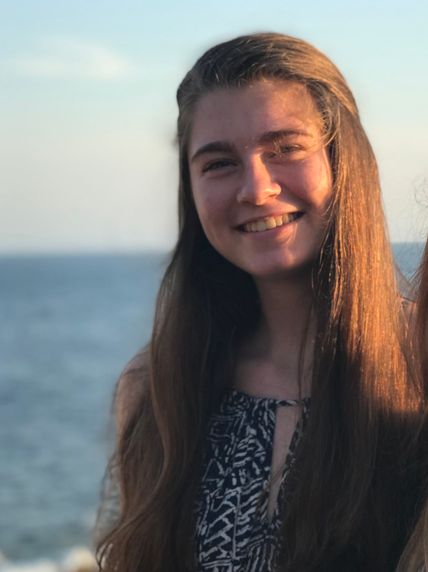 |
Final Year BSc Biological Sciences student |
I love sharing my curiosity for science and the world around us, so I am so glad to be back for another round of Science Actually! I’m once more involved in brainstorming and web page design. In season one I oversaw the sleep episode with Dr Gilestro. This season, I hosted the episode on sustainable materials with Dr Romain, Dr Lee and Prof. Titirici, and the episode with FlexSea, a startup which is developing an algae-based bioplastic. |
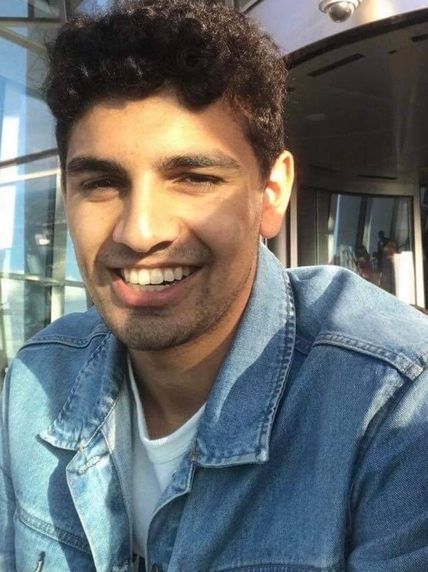 |
UCL Clinical Neuroscience MSc student |
I was drawn to this podcast as it fills a vital void in science that needs to be addressed: misconceptions. I'm proud to be part of the brainstorming, recruiting of lecturers along with editing and producing music soundtracks for the podcast. I worked on the food episode and led the interview with Maria Charalambides. |
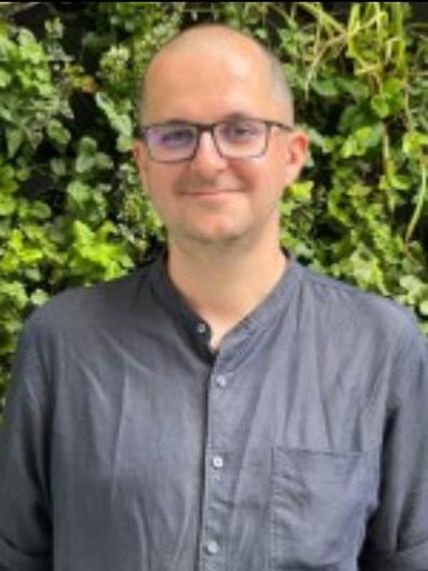 |
Research fellow |
I am a Research Fellow at the Data Science Institute and team lead of the Data Observatory team. My current work includes real-time Natural Language Processing, Data Curation and Large-Scale Visualisation Systems. I love talking about AI, computers and their impact on medicine and society in general. For the podcast I worked on the future of AI ethics, explainability and economic impact. |
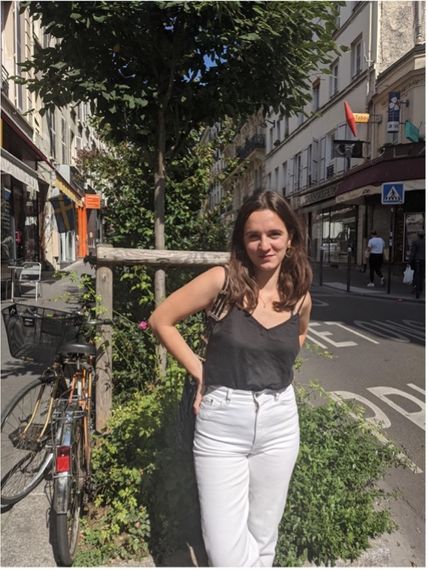 |
3rd Year Chemistry student |
I am thrilled to be back for a second season of Science Actually. I was delighted to help new members settle in our family and coordinate the preparation of episodes as well as marketing. I really hope this season which touches upon a wide variety of topics will allow all of you to have a good time. Bonus: You can still hear my voice at the start of every episode! |
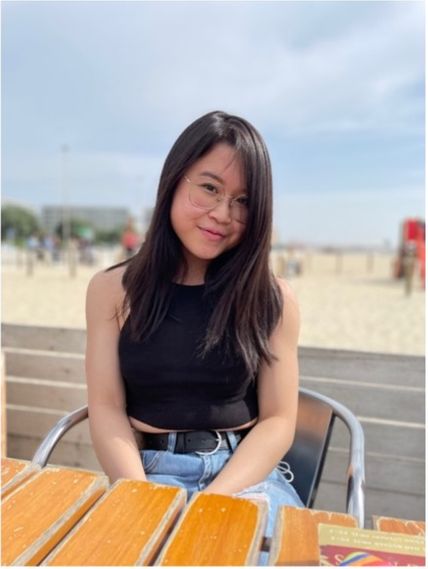 |
BSc Biological Sciences graduate |
I am excited to be part of this podcast as I love learning about new scientific research and communicating science in engaging ways. For season 2, I am part of the social media team and hosted the episode on sustainable food production, where I interviewed Dr Tilly Collins and Réka Trón. |
 |
Senior Teaching Fellow of Quantitative Life Sciences |
I am Senior Teaching Fellow in the Department of Life Sciences with a background in grassland functional ecology. I joined the podcast to increase the accessibility of Imperial’s science and research, bringing the research to the masses, whilst delving into topical debates and issues. I was involved in the brainstorming and design of the artificial intelligence and biases episode where I interviewed Dr Kuan Hon and Dr Viral Thakerar. |
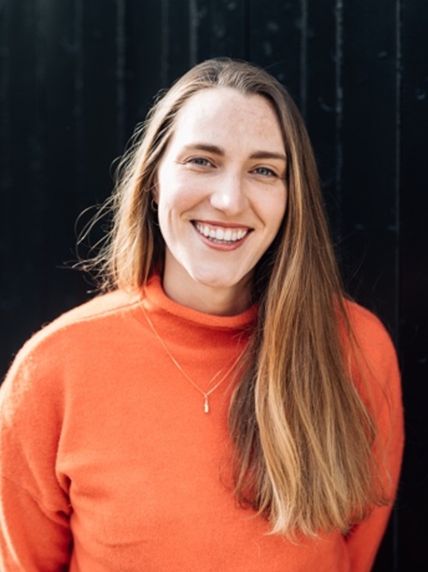 |
Medical doctor and teaching fellow |
I am a medical doctor and teaching fellow with a curiosity for the human body. Linda and I launched this podcast to work with students to showcase Imperial’s amazing research and inspire listeners to get involved in scientific research. For this podcast, I interviewed Balazs Szigeti about psychedelic science. |
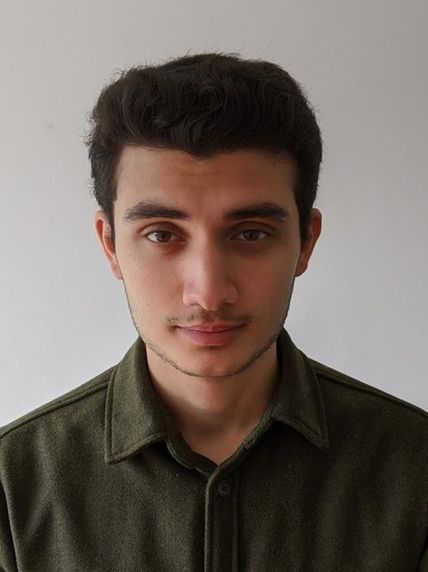 |
Fourth year Chemistry student |
I’m interested in using my large range of media skills I gathered as a teenager to produce content to bridge the gap between scientific research and the public. I created the logo for the podcast and worked on the food episodes, in particular interviewing Jozef Youssef. |
 |
Medical Biosciences graduate |
I have a huge interest in health policy and science communication. As part of the Science Actually team, I have been involved in the brainstorming and social media. I interviewed Dr Chris John exploring the myths and facts on drugs of abuse such as alcohol and cannabis in the context of student social norms. |
Science Actually Podcast Season 1

Season 1 Episode 1 - Brain and memory
Brain and Memory: Do you have a maximum capacity for memory?
In this episode of Science Actually we discuss our memory. Linda van Keimpema interviews our guest Professor Simon Schultz. Simon is the head of the Neural Coding Lab at Imperial. With a background in Engineering, Physics and a PhD in computational neuroscience, Simon combines neuroscience and engineering to study the brain in his lab.
In this episode, Simon tells us more about his research, including his recent paper describing how old memories are reorganised when you learn something now. Simon explains to us how the memory palace technique and an older Aboriginal story telling technique can be used for studying, and reveals other tips for how best to learn something new. He also answers our main question: Do you have a maximal capacity for memory?

Season 1 Episode 2: Food and nutrition
Food and nutrition: can food be used as medicine?
In this episode Ali Al-Sikab dives deep into how food impacts day to day life and how it can be used to maximise our own happiness! Jozef Youssef is a professional chef, working in Michelin star restaurants who uses his interest in gastronomy to benefit his own design studio - Kitchen Theory.
Jozef tells us about his own research, including how the different senses can be used to improve the taste experience, and how we can use food to improve performance. He also discusses what exactly is the best way to start cooking in the kitchen as a student.

Season 1 Episode 3: Sleep and memory
Sleep and memory: Is a good night's sleep crucial to do well on exams?
In this episode of Science Actually, Eva Bremnes discusses sleep and memory with our guest, Dr Giorgio Gilestro. Giorgio is a senior lecturer at Imperial and he is at the head of his research lab that focuses on the enigmatic functions of sleep. With a background in medical biotechnology, he outlines how genetics and the fruit fly helped us explore the mysteries of sleep, consciousness and the nervous system.
In this episode, Giorgio tells us more about his research, and about how sleep and memory are linked. He also answers our main questions: do we need sleep? Is a good night’s sleep crucial to do well in exams?

Season 1 Episode 4: Alcohol and cannabis
Alcohol and cannabis: Can drugs of abuse have health benefits?
Dr Christopher John, Senior Lecturer in Pharmacology at Imperial, will untangle with Elena Torrell the most common associated myths with drugs of abuse associated with student life such as alcohol and coffee.
From his academic background, we cover drug regulation from a scientific point of view and how it impacts research with drugs of abuse. Can we trick our bodies boosting our academic performance? Do drugs of abuse kill your brain cells? Is CBD oil as good as it is marketed?

Season 1 Episode 5: Engineering and food
Engineering and Food: Does engineering hold the secrets for healthy foods?
In this episode Hendrik Vogt explores how to engineer food to make it healthier. Professor Maria Charalambides is a professor of mechanics of materials at Imperial College London University.
Maria’s work on food focusses on making chocolate healthier, collaborating with the biggest global food and beverage company Nestlé. Maria discusses her current findings on chocolate in addition to her other research projects which investigate the digestive system. These pioneering revelations potentially hold the key to transforming your dietary intake without compromising enjoyment.

Season 1 Episode 6: Science and drugs
Science and drugs: can drugs of abuse have health benefits?
In this episode of Science Actually, Katie Addy discusses drugs of abuse and their potential health benefits with our guest Balázs Szigeti.
Balázs is a researcher at the Centre for Psychedelic Research at Imperial College London. He has a background in computational neuroscience and started a collaboration with the Global Drug Survey to quantitatively compare the dose of recreational users of various drugs such as MDMA with the scientific literature.
Balázs tells us a bit about his research into MDMA and psychedelics. He explains the difficulty of researching drugs of abuse, their potential benefits to people suffering with mental health disorders and the difficulty in regulation of such drugs. He also tackles our main question: can drugs of abuse have health benefits?
Science Actually Podcast Season 2

Season 2 Episode 1: Sustainable Materials
Sustainable Materials: Making plastics and energy technologies more sustainable
In this episode, Eva Bremnes explores the future of sustainable materials with 3 expert guests from Imperial.
Dr Charles Romain, a Junior Research Fellow in the Department of Chemistry, leads a research group involved in developing sustainable polymers from renewable resources. He introduces the topic and outlines some common misconceptions and challenges around bioplastics.
Dr Koon-Yang Lee is a reader in polymeric materials in the Department of Aeronautics, and oversees the Future Materials Group, which is developing materials for a resource efficient and low waste future. He tells us more about lignin and cellulose as renewable materials for flexible packing applications.
Professor Magda Titirici is a chair in Sustainable Energy Materials and a member of the Department of Chemical Engineering. Her research group addresses the issue of resources in sustainable energy technology. She explains the problems with the supply chain of critical metals used in everyday tech, and how her research is tackling this challenge.
Together, they answer our main question: what is the future of sustainable materials?

Season 2 Episode 2: Ageing and Disease
Ageing and Disease: can our environment affect neurodegeneration?
In this episode of Science Actually, Madeleine Eaton talks to Dr. Sarah Marzi about ageing and neurodegenerative diseases.Dr. Marzi is a research fellow leading a group at the UK Dementia Research Institute at Imperial. Using epigenetic, genomic, & computational techniques, her lab aims to understand mechanisms of neurodegeneration.
She’ll tell us more about her work, how both genetic and environmental factors affect neurodegeneration, and the difficulties in researching these diseases.
Finally, she also tackles the future of ageing and whether neurodegenerative diseases be cured in the future…

Season 2 Episode 3: Sustainable proteins
Sustainable proteins: future-looking solutions to the current meat industry
In this episode, Ellie Fung explores future solutions to the environmental toll of today’s food production systems with two guests.
Dr Tilly Collins, deputy director of Imperial’s Centre for Environmental Policy, is a proponent for incorporating insects into the food system. She delves into how insects can be harnessed to make current agricultural practices more efficient, and the health and environmental benefits of – you guessed it – eating insects.
Next, Reka Tron, Imperial alumnus and co-founder of the startup Multus Media, introduces us to the emerging field of cultivated meat and how it seeks to address problems of the current meat industry. She also tells us about how Multus is working towards making cultivated meat a reality for consumers.
Our two guests provide their take on the episode’s main question: what does the future of sustainable food production look like?

Season 2 Episode 4: Biases and Artificial Intelligence
Biases and Artificial Intelligence: a data or people problem?
In this episode, Josh Hodge explores the application of artificial intelligence (AI) and bias with two Imperial experts.
Dr Kuan Hon, a guest lecturer in the Department of Computing, is a qualified English solicitor and New York attorney specialising in data protection laws and related legal issues. They draw on every day and legal examples to introduce the topic and take a deep dive into the key AI concepts, such as bias and fairness.
Dr Viral Thakerar is a practicing general practitioner, a Clinical Lead for the Digital First programme in the Northwest London Integrated Care System and leads the Patients, Communities and Healthcare GP course in the Faculty of Medicine, which integrates the use of AI in GP practice. They explain the integration and use of AI in digital health, and how Imperial is addressing biases in medical curricular.
Together, they address the overarching question: how do biases impact legal, clinical, and educational practices?

Season 2 Episode 5: Sustainable packaging
Sustainable Packaging: How FlexSea is revolutionising the field of algae-based plastics
In this episode, Eva Bremnes interviews Carlo Fedeli, the co-founder of FlexSea. Both he and his co-founder, Thibaut Monfort, hold master’s degrees from Imperial, and together they founded a startup with the aim to redefine flexible plastic packaging.
To change our relationship with plastic, they have developed a biodegradable, compostable packaging made from seaweed. Carlo explores with us the origins of FlexSea, how they have gone from an idea to a physical prototype, and what they are aiming to achieve in the future. Carlo being the business man and Thibaut the scientist, together they bring a rounded approach to a critical problem in the present, with the target of having an impact in the future.

Season 2 Episode 6: Biases and Artificial Intelligence
Biases and Artificial Intelligence: How should we cope with the biases?
In this episode, Ovidiu Serban explores the potential solutions to Artificial Intelligence biases from a business and computational point of view with two Imperial College experts.
Dr Mark Kennedy is an Associate Professor at the Business School and co-director of the Data Science Institute. Dr Kennedy was educated at Northwestern University and Stanford University. Before coming to Imperial, Dr Kennedy was at the University of Southern California's Marshall School of Business.
Prof Francesca Toni is a Professor in Computational Logic, and the JP Morgan Research Chair in Argumentation-based Interactive Explainable AI, in the Department of Computing at Imperial College London. She is also a member of the AI@Imperial Network of Excellence and the leader of the Computational Logic and Argumentation research group. More recently, she became the founding leader of the Centre for eXplainable AI (XAI).
Ultimately, this episode will explore how Imperial experts are approaching one of the biggest challenges in Artificial Intelligence and answer the question: Can we remove biases from Machine Learning models, or is this something we’d have to live with?
.png)